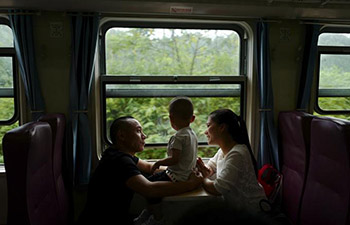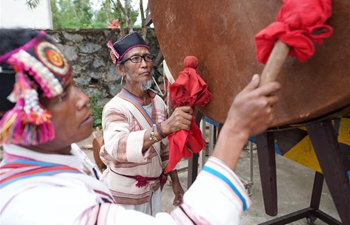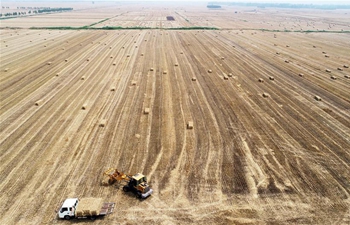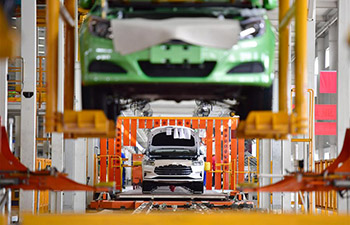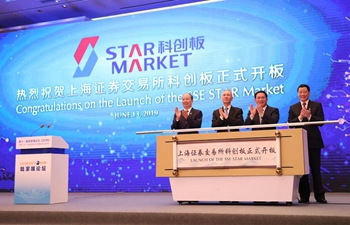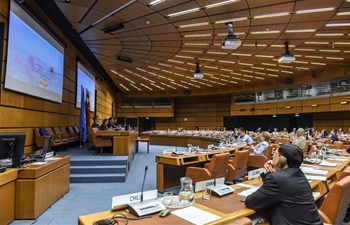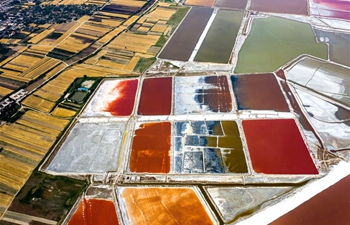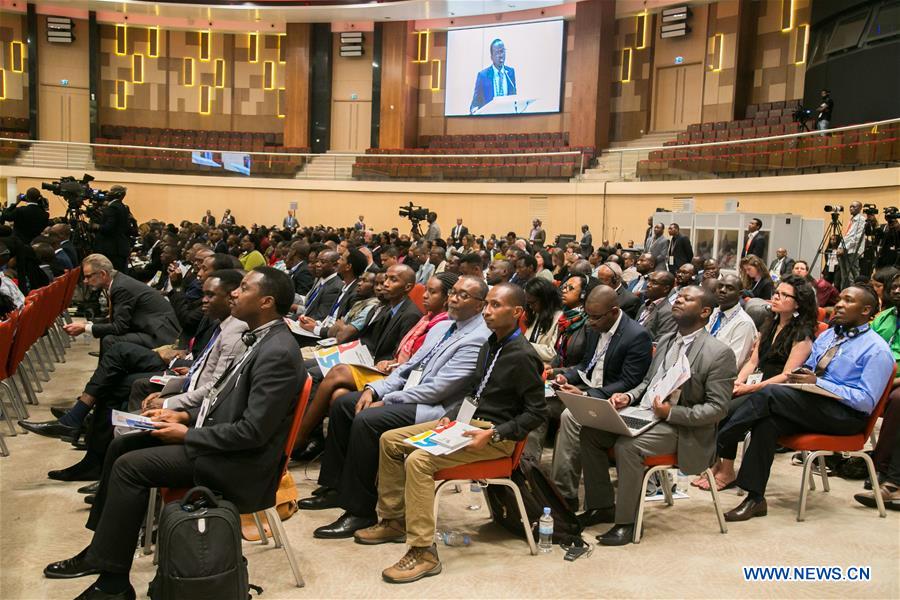
People attend an international conference on the implementation of sustainable development goals (SDGs) in Africa, in Kigali, Rwanda, on June 14, 2019. Africa needs to address major issues such as inadequate data, poor inclusiveness, slow growth that could jeopardize its 2030 Agenda for Sustainable Development, said a report launched Friday. (Xinhua/Cyril Ndegeya)
KIGALI, June 14 (Xinhua) -- Africa needs to address major issues such as inadequate data, poor inclusiveness, slow growth that could jeopardize its 2030 Agenda for Sustainable Development, said a report launched Friday.
In 2015, a United Nations summit adopted an agenda that comprises 17 sustainable development goals (SDGs), including ending extreme poverty, preserving the environment and promoting economic growth.
Large data gaps continue to predominate, and only 40 percent of the indicators in the global SDG data framework are accompanied by data in Africa, said the report.
The document, titled Africa 2030: SDGs Three-Year Reality Check, was compiled by Kigali-based Sustainable Development Goals Center for Africa.
The report, which monitors Africa's progress toward the SDGs and explores the structural challenges Africa faces, was launched by Rwandan President Paul Kagame at an international conference on SDGs' implementation in Africa, which ran from Wednesday to Friday.
Even where data exists, much is outdated or incomparable across countries, the report said.
Economic growth in Africa remains subdued, as does social economic inclusion, which is the second main issue, it said.
Africa's economic growth has plateaued or failed to achieve its potential in recent years, and many believe it has not been inclusive or consistent with the people and prosperity pillars of the SDGs, the report said.
Growth remains slower than the SDG 8 target of at least 7 percent a year, it said, adding that social inclusion is in part constrained by rapid population growth, which outstrips most of the SDG progress in key areas.
Two-thirds of African countries are in the "low human development" category of United Nations Development Program's Human Development Index and they continue to struggle with education and healthcare, according to the report.
Another issue is that the global SDG framework, though already in place, lacks fully fledged implementation and accountability mechanisms, the report said.
The formulation and implementation of SDGs over the last three years reveals gaps and loose ends that are either shallowly addressed or entirely skipped over, it said, adding that there is a continued lack of clarity on accountability mechanisms for SDGs.
Financing for SDGs has fallen short of targets and the funding gap is particularly large in Africa, read the report.
The SDG financing gap for Africa is estimated at between 500 billion U.S. dollars and 1.2 trillion dollars annually, it said.
"On almost every goal, our continent is not on track to achieve the 2030 targets. Even the best amongst us are lagging behind the rest of the world," Kagame said when launching the report.
He encouraged Africa to "aim high" and to do the right things and find funds to achieve the goals.
"We are already one-quarter of the way to 2030," Kagame said. "Africa can definitely make up for lost time but we need a much faster pace.
Zambian President Edgar Lungu and Liberia's Vice President Jewel Howard-Taylor joined Kagame in a panel disccusion on SDG progress in Africa, where they called for joint efforts in Africa to achieve the goals.
